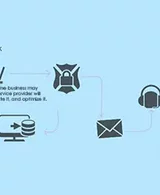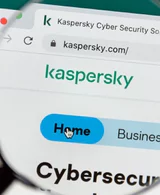Phishing Scams What Does It Look Like

Phishing Scams What Does It Look Like
Phishing Scams What Does It Look Like – Undoubtedly, Phishing Scam is the most sophisticated cyber-attack from the list of endless security threats. Although it may sound fairly simple, due to its legitimate appearance, it is one of the proven tactics adopted by hackers for duping a victim and capturing his private information. The attacker masquerades himself as a trusted entity that you may think is harmless, for instance; a request from his bank or a note from a company ID to click a link or download an attachment.

Phishing Scams What Does It Look Like
Currently, Phishing Scams are becoming even more sophisticated and because of their secretive disguise more data breaches are happening than before. According to ACCC (Australian Competition and Consumer Commission) – Phishing Scams are 63% higher than the second most reported scam in cyber-attacks. A hacker can trace or steal information from a private/individual system even from the slightest clue – just username and password are enough to break the security. And for this reason, it’s crucial to be aware of phishing schemes, tactics of cyber criminals and apply best practices to keep your security up to date.
Some Recommendations to Protect Against Phishing
In this article, we are discussing some simple steps that will keep you protected against phishing attacks. Share it with your colleagues and teammates within the organisation.
1. Beware of suspicious/phishing digital activities: An email that asks for the personal information should be taken seriously. If that email has a link embedded in the copy, make sure to read it carefully to pick up clues that it is coming from a genuine source. Your team members should be briefed not to share their personal or company information on any email that may look normal but takes them to an unknown link. Chances are that a hacker is connecting with their computer the minute they enter their personal information.
2. Do multiple checks to authenticate web address: Most people don’t pay close attention to the site indicated on the link they receive. Perhaps it is because they don’t know that you can reveal and check the link by using “Click Here” button before clicking it. Always preview the site by hovering over the link before initiating the action. Also, make it a practice to open the website where you find a suspicious link in different browsers and different computers.
3. Check where you are clicking and where it will go: Everyone has experienced a feeling of “Perhaps! I shouldn’t have clicked on that one!” when the computer starts to prompt unnecessary popups and threatens for malware, spyware and other scams. As we’ve discussed, many browsers provide a preview of where the link will take you before clicking. Make sure to use this feature especially if the website is questionable.
4. Don’t input personal information unless you are absolutely sure of the website: We cannot overemphasize this point enough. If you are not sure about a web address, refrain from adding your personal information on the portal.
5. Keep your security up to date: Use security software you trust like Kaspersky Anti-ransomware Solution, and enable them to update automatically. Also, take an expert guidance from a network and security expert who can proactively look at the issues and mitigate them before they actually appear.
Takeaways
ACCC stats shared earlier clearly indicate that even the most tech-savvy individuals can be fooled by Phishing Scams, causing them to give up personal information, passwords, credit card numbers and bank account numbers.
As a best practice, you can also hire security experts to prevent your organisation from such security breaches. Reach out to us how we can proactively help you. Also, let’s do a risk assessment so that you can get an idea how it may cost to your business. Call us at 1300-123-428 or email us [email protected] to do a free risk assessment for your business.
Stay Tuned to our Facebook, and LinkedIn page for more updates.





